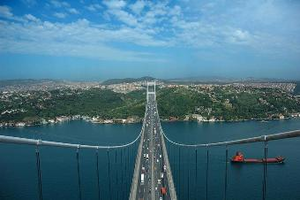Government Pride and Populism Threaten to Deepen Recession in Turkey
By Gareth Jenkins (vol. 2, no. 5 of the Turkey Analyst)
When the global financial crisis sent economies around the world into a tailspin, officials from Turkey’s ruling Justice and Development Party, AKP insisted that the country would remain unaffected. One of the reasons appeared to be a simple refusal to acknowledge that anything negative could happen to the Turkish economy while the AKP was in government. Another seems to have been a reluctance to introduce austerity measures in the run-up to the local elections of March 29, 2009. There is a danger that the combination of pride and political short-termism could both deepen the impending economic recession in Turkey and threaten the social and political fabric of the country.
Turkey on the Brink of Economic Crisis
By M. K. Kaya (vol. 1, no. 19 of the Turkey Analyst)
The effects of the global economic crisis are increasingly making themselves felt in Turkey as well. After having initially taken the position that Turkey would somehow remain shielded from the global unrest, the AKP government has gradually been forced to acknowledge the vulnerability of the Turkish economy. However, with continued political instability and with the upcoming local elections, the AKP government is having severe difficulties in mustering the required ability to manage the unfolding economic crisis.
Turkey's Privatization Program Marches On: Bids too Low?
by Ben Welch (vol. 6, no. 6 of the Turkey Analyst)
While the recent decision of Turkish Prime Minister Recep Tayyip Erdoğan to cancel a privatization tender has caused concern, due to the unpredictable nature of the intervention, Turkey remains a popular venue for international investors seeking high-yielding infrastructure purchases. With more positive news in the first quarter of 2013 reflecting declines in the current account deficit, reasonable projected growth over the next few years, and the demographics pointing in the right direction, the stage is set for continued interest in the Turkish privatization market.




